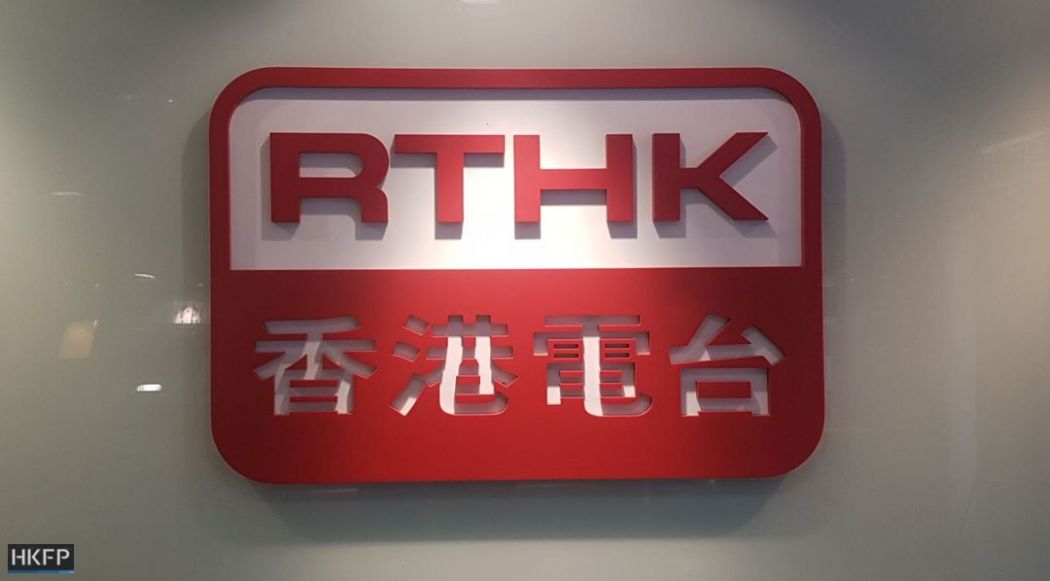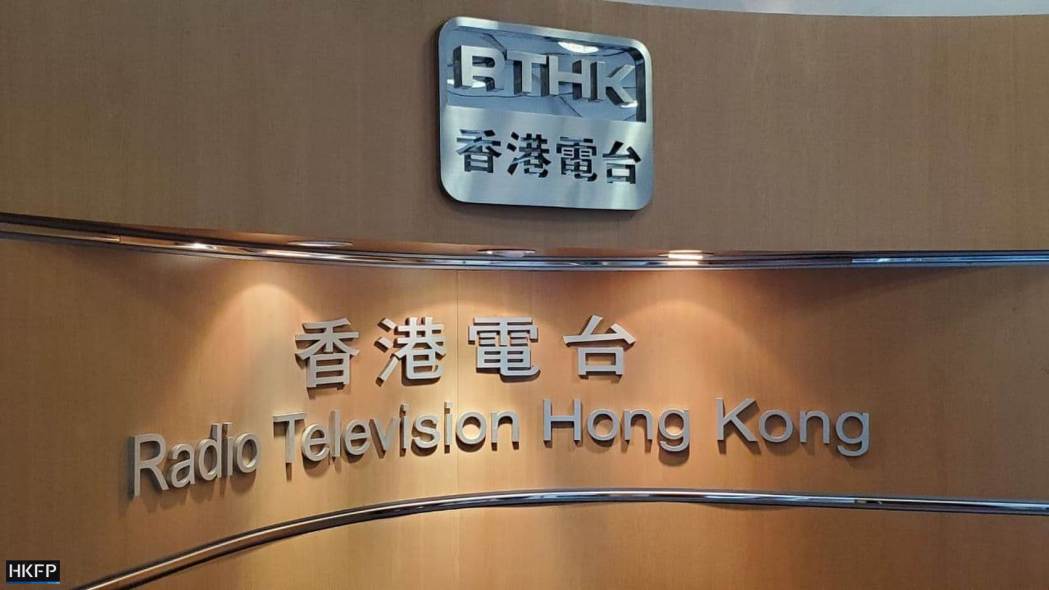RTHK has told its staff to avoid contact with foreign governments or political organisations under new editorial guidelines, as the public broadcaster pledges to prevent acts that endanger national security.

The new document states that RTHK must respect and uphold the One Country, Two Systems principle and take responsibility for “preventing and suppressing acts” that endanger national security.
It says “under no circumstances should our programmes provide a platform to encourage, incite, promote, glorify, endorse or sympathise with any act or activity endangering national security or otherwise contain any contents which are contrary to the interests of national security.”
The document states that, in 2020, RTHK deleted a programme featuring a suspect who went on the run as it needed to be “cautious in spreading seditious messages of fugitive who is suspected of breaching the Hong Kong National Security Law.”
Programme makers must be “cautious in contacts with foreign or external governments or authorities/related institutions, political organisations or illegal organisations and should avoid any such contacts that may constitute a conflict or may reasonably be suspected to conflict with his/her official duties,” the 105-page document said.
In a section about covering protests, it claimed that many demonstrators “have increasingly sought media coverage by prominently positioning themselves at large or important public events,” as it urged staff to be wary of people “performing for the camera or microphones.”

“The recording and broadcasting of criminal activity will not normally amount to encouragement or incitement. However, we should take care that criminal acts are not sympathised, justified or glamorised by our narrative.”
Staff wishing to “grant anonymity to anyone trying to evade the law” or run any political opinion polls will need to discuss the matter with management.
The guidelines said that social media should be used “prudently” and any “public expression of opinion, political activities and public appearances” must not give rise to conflicts.
It also lays out that Taiwan must only be referred to part of the People’s Republic of China: “RTHK has to comply with the current policy on nomenclature with regard to Taiwan. Taiwan is part of China. Under no circumstances should Taiwan be referred to as a country or perceived as one.”
‘Facts speak for themselves’
New Advisor to the Director of Broadcasting Kitty Choi, said that critics of the government can still be interviewed: “Facts speak for themselves and facts are facts as long as these are genuine comments made by real people,” she told RTHK. “There’s no problem for reporting such as facts in our news.”

The document itself says that the guidelines are broad as Choi warned staff to “think twice” about their external activities interfering with RTHK’s image.
Tiananmen ‘ending’
Several Twitter users noted apparent editorial changes in the days leading up to the Wednesday’s announcement.
Three recent stories relating to the Tiananmen Massacre, and the commemorative groups and activities in Hong Kong, failed to mention there was a bloody crackdown. Rather, one of them referred to simply the “ending” of the 1989 protests.
Hundreds, perhaps thousands, were killed when the military were deployed the end the student demonstrations. Those leading commemorations in Hong Kong have been arrested, whilst an online museum has been blocked.
Meanwhile, on Tuesday, RTHK appeared to “paste up” entire paragraphs from the state-run Chinese news wire Xinhua. A story about China laying out a “new way for humanity to modernise” was a carbon copy of the government’s news agency report, with the words “according to Xinhua News Agency” added half-way through.
RTHK refused to comment on the two issues when approached by HKFP.
Press freedom concerns
The editorial changes are the latest controversy since a new Director of Broadcasting with no previous media experience took the helm in March. Since then, RTHK has also scrubbed its online archives, purged and restricted its Twitter account, launched a chat show hosted by Chief Executive Carrie Lam, and issued directives to staff to use Beijing-approved wording.
Lam has also announced a partnership between the broadcaster and Chinese state media CCTV to air more mainland-produced shows to instil a sense of patriotism among Hong Kong viewers.

RTHK has seen an exodus of senior editorial staffers since the change in leadership, with ex-TV host and veteran journalist Steve Vines fleeing the city in August.
The changes come amid growing concern over the state of press freedom under the Beijing-imposed national security law as the authorities vow to roll out a “fake news” law. The city’s press group has warned press freedoms are “in tatters” after a crackdown on the now-defunct Apple Daily newspaper.
Support HKFP | Policies & Ethics | Error/typo? | Contact Us | Newsletter | Transparency & Annual Report | Apps
Help safeguard press freedom & keep HKFP free for all readers by supporting our team

LATEST FROM HKFP
HKFP has an impartial stance, transparent funding, and balanced coverage guided by an Ethics Code and Corrections Policy.
Support press freedom & help us surpass 1,000 monthly Patrons: 100% independent, governed by an ethics code & not-for-profit.










